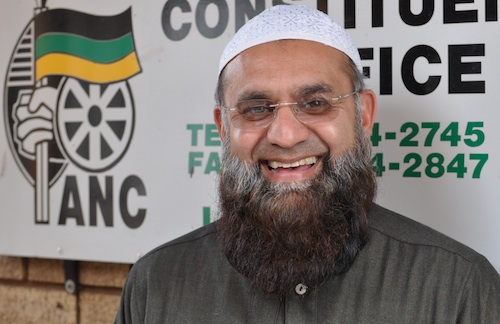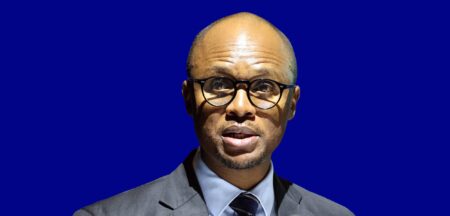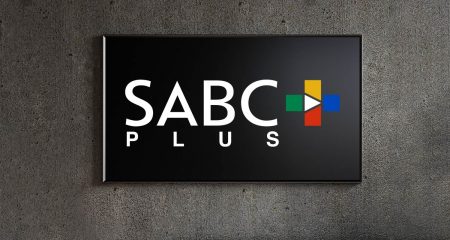
The SABC board has moved to suspend CEO Solly Mokoetle, it emerged on Tuesday. The news was revealed soon after the Western Cape high court overruled attempts by parliament to hold a briefing on the latest trouble at the public broadcaster behind closed doors.
“They have served him with a legal letter with the intention to suspend him and he has been given an ‘x’ number of days — exactly how many days I don’t know — to respond to the letter to explain why he should not be suspended,” said Ismail Vadi, chairman of parliament’s portfolio committee on communications.
He was speaking to reporters after the media won an interdict preventing the committee from continuing with an in camera meeting with the SABC on renewed strife at the broadcaster, a mere eight months after Mokoetle and the new board took up their positions.
The ruling was handed down as an interim order shortly before noon by acting judge Sven Olivier, following an urgent application by the SA National Editors’ Forum (Sanef).
The order came after the committee allowed SABC chairman Ben Ngubane, who is in open conflict with the rest of the board, to deliver a submission defending his position.
“He expressed very serious concerns about the dysfunction of the board and he cited a whole number of examples which he had experienced which contributed towards the state of dysfunction,” Vadi said.
Democratic Alliance MP Lindiwe Mazibuko told Sapa Ngubane had “put his side of the story”.
“He admitted there was a breakdown of trust, but he said he’s doing his job as best he can and the rest of the board was not functioning well.”
Following the court order, Vadi decided to suspend the meeting with the SABC indefinitely, rather than proceed and allow the press to attend. He said he needed to discuss the way forward with parliament.
“I think we still need to confer with the speaker’s office and the leadership of parliament about the implications of the judgment, because this has a bearing on the functioning of parliament as a whole and on other committees.”
Vadi said the meeting remained urgent because the problems besetting the SABC were “a matter of very serious concern to the committee”.
Tensions at the broadcaster were brought to a head by Mokoetle’s decision to name Phil Molefe as head of news without the agreement of the board.
Ngubane’s backing for the appointment, which the board considers illegal, further soured relations on the board.
Vadi last week decided to close most of the meeting to the press, for fear of the legal implications of having Mokoetle’s reputation and position challenged in public.
Sanef on Monday, through its lawyers, asked the committee to open the meeting, but the committee decided on Tuesday morning that the session would stay closed to the public and media.
Sanef lawyers were in the Western Cape high court as the meeting got underway in committee room V475, with some 15 journalists from local and foreign news organisations staging a sit-in outside.
In his ruling handed down just before noon, justice Olivier ordered the committee not to proceed with any sitting from which the public, including the media, was excluded.
This order would be valid until “the final determination of this matter”.
The ruling came amid an increasingly tense stand-off between the media and the government over a perceived attack on media freedom, weighted around the Protection of Information Bill and the ANC’s proposal for a media tribunal that reports to parliament.
Sanef welcomed the court’s decision and urged Vadi to reconvene the meeting on the SABC board as a matter of urgency and in public.
“The issues to come before the committee about the public broadcaster were of overwhelming public interest and the reasons advanced for the closed hearing were not sufficient to warrant a ban on the media attending the hearing,” it said in a statement.
“Sanef and the Press Gallery Association call on the committee to proceed immediately with the hearings in public so that the public is informed of what is happening at the SABC.”
The Institute for Democracy in South Africa (Idasa) sent a letter to Vadi on Tuesday criticising the committee’s bid to hold the meeting in camera before the court ruling was made.
“The problems within the SABC have persisted and holding a closed meeting simply creates the perception that facts are being withheld from the public.”
Idasa said parliament was obliged by section 59 of the constitution to “conduct its business in an open manner, and hold its sittings and those of its committees in public”.
Attempting to hold the SABC briefing behind closed doors could set a dangerous precedent, it warned.
“Idasa is concerned that closing the meeting will set an unhealthy precedent which other committees may in future also follow, thereby leading to a culture of exclusion and secrecy within parliamentary committees.”
In a statement, parliament protested it was acting in accordance with the constitution, and was studying the implications of the ruling.
“Parliament is consulting its legal counsel and is examining whether the interim ruling by the court could have far-reaching consequences for parliament carrying out its business as the legislative branch of the SA state.” — Emsie Ferreira and Ben Maclennan, Sapa
- Subscribe to our free daily newsletter
- Follow us on Twitter or on Facebook




